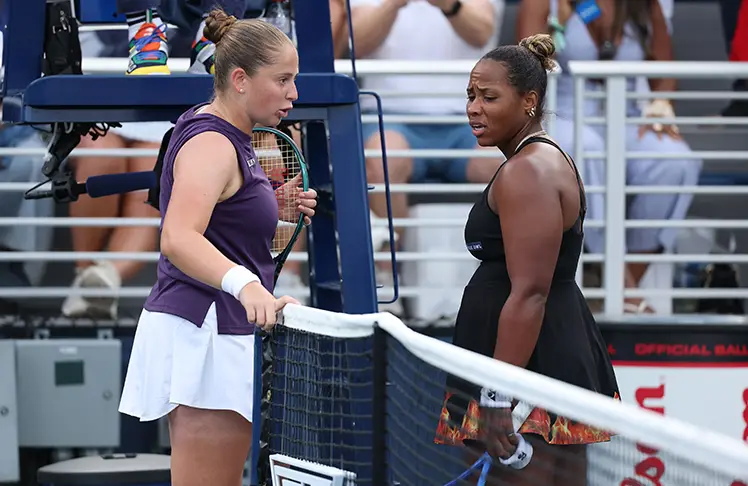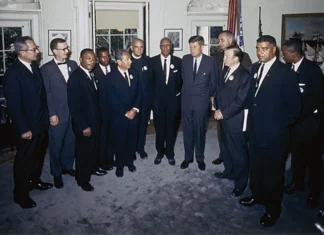
By Ben Morse, CNN
(CNN) — The post-match exchange between Taylor Townsend and Jelena Ostapenko on Wednesday at the US Open was a terse encounter but probably left many wondering what the big deal was that caused all the tension.
As it happens, the clash stemmed from the breaking of an unspoken rule of tennis.
After Townsend’s straight-sets victory over Ostapenko, the two players could be heard exchanging heated words besides the court, with the Latvian saying the American had “no class” and “no education.”
According to Ostapenko, the origin of the argument came from a moment of controversy that is not part of tennis’ codified laws and instead an act of – or lack of, in this case – sportsmanship.
Ostapenko explained on social media later that her ire originated from a moment midway through their second-round match when Townsend did not say “sorry” after being helped by a net cord during a point, with Ostapenko calling her American opponent “disrespectful.”
“There are some rules in tennis which most of the players follow and it was (the) first time ever that this happened to me on tour,” Ostapenko posted. “If she plays in her homeland, it doesn’t mean that she can behave and do whatever she wants.”
In tennis, if a player hits a shot which clips the top of the net and the ball trickles over to their opponent’s side of the net – therefore winning the point – it is commonplace for them to raise their hand in a symbol of apology.
They do so in an effort to express to their opponent that they did not intend to hit a shot that hit the net but still helped them win the point – and also acknowledging the bit of luck, or misfortune, involved.
It’s a gesture that is commonplace in the sport but often lacks the sincerity of a real apology and instead is a piece of politeness.
“(It’s the) typical ‘Sorry, not sorry,’” two-time grand slam champion Svetlana Kuznetsova explained in 2020.
“I will put it to you this way. When you go to a store in the United States, and they ask you: ‘How are you?’ – do they care how you are? But you’re still polite and you answer,” the Russian said. “This is the same thing: You’re polite and you put your hand up.”
While players apologize for hitting the net cord most of the time, there are occasions when they don’t and upset their opponents, like Ostapenko.
In the semifinals of the women’s singles draw at Wimbledon this year, Aryna Sabalenka admitted to being “pissed off” when Amanda Anisimova didn’t apologize for hitting the net cord, instead choosing to celebrate the point.
“I was like: ‘You don’t want to say sorry?’ She just wanted, I guess, badly, to win this match,” Sabalenka said. “It’s on her. If she doesn’t feel like saying sorry, like she barely got that point and she didn’t feel like saying sorry for that tricky situation, that’s on her.”
At Wimbledon in 2007, Rafael Nadal criticized Robin Söderling for fist-pumping instead of apologizing for a point won via hitting the net cord.
Soderling’s reply was honest in nature: “Why should I say I’m sorry when it’s the happiest moment of my life?”
The-CNN-Wire
™ & © 2025 Cable News Network, Inc., a Warner Bros. Discovery Company. All rights reserved.



